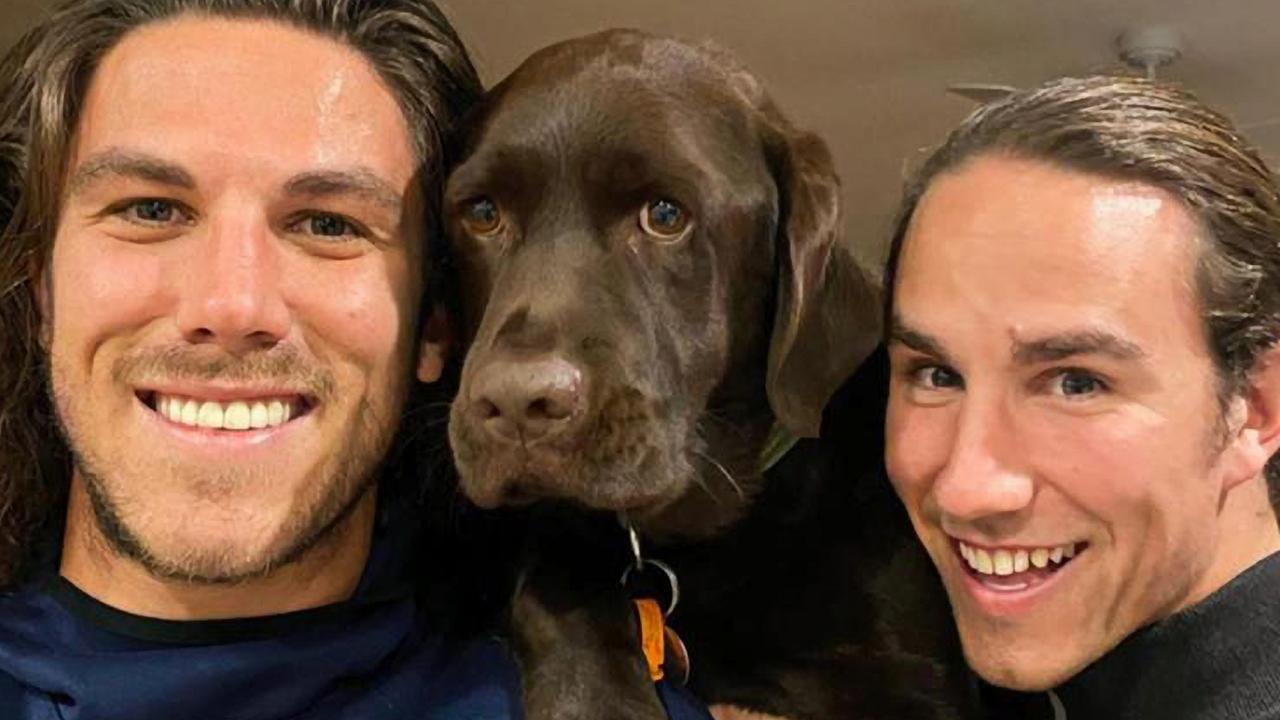Terror ‘watch-list’: ASIO leaving Aussie police in the dark on terror
ASIO is denying frontline police and even some Australian Federal Police about potential jihad suspects, with the nation’s leading terror expert claiming there could be more than 1000 people being scrutinised for potential jihadist behaviour.
Crime in Focus
Don't miss out on the headlines from Crime in Focus. Followed categories will be added to My News.
Exclusive: Frontline police and even some Australian Federal Police are being denied full knowledge about potential jihad suspects because they lack the proper security clearances to get information about those ASIO deems as high-risk.
The problem can put lives at risk and also flows into the private sector, where employers are unaware that up to 1000 people ASIO deems as possible terrorist threats may be working for them.
News Corp Australia visited a major Perth hotel where two young men who both had their passports cancelled due to adverse security assessments were busy working in a high-traffic area, though their employer had no knowledge they were subject to monitoring.
Both men insisted they were not, and never were, a threat to Australia.
MORE: Cleo Bachelor dies while fighting for Islamic State
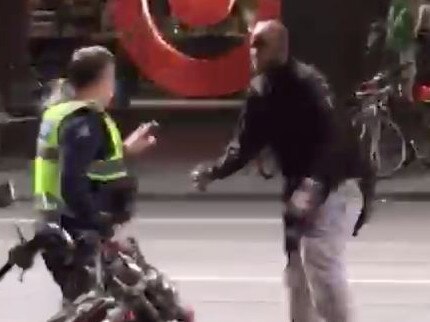
Victorian police were unaware that Bourke St Hassan Khalif Shire Ali had his passport cancelled, which may have caused them to look harder at his missed court appearances for driving offences.
“The fact that his passport had been cancelled had not been conveyed to Victoria Police,” Victorian attorney-general Martin Pakula said.
“In a perfect world, all of the information held by every authority, state and federal, should be shared with one another.”
In 2014, ASIO did not inform their Victorian counterparts that Numan Haider’s passport had been cancelled. He stabbed two officers outside Endeavour Hills police station before being shot dead.
“Not everyone’s allowed to access to all information,” says Levi West, director of Terrorism Studies at Charles Sturt University.
“Sharing information with people who do not hold the appropriate clearance is a criminal offence.”
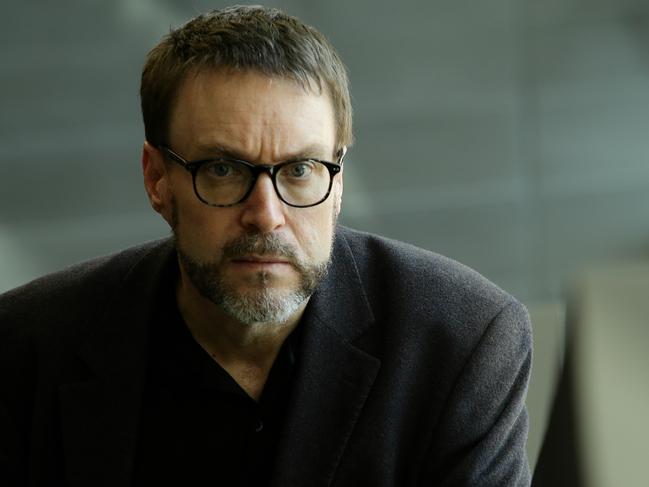
ASIO states it is “currently managing over 400 counter-terrorism investigations” which Australia’s leading terror expert, Greg Barton, says translates to more than 1000 individuals — mostly young working-age men — being scrutinised for potential jihadist behaviour.
Professor Barton said ASIO was trying to manage a significant problem. “There’s probably 1000 people there are concerns about with jihad and to a much lesser extent right-wingers,” he said. “It’s a lot of people to be keeping an eye on.”
ASIO employees have the highest of the four levels of security clearance in Australia, meaning they cannot pass information to private citizens, such as employers and, in some instances, cannot inform state or some federal police who have lower clearances.
Scott Weber, CEO of the NSW Police Association, said: “It’s one of those things where we could communicate more readily with ASIO but bureaucracy processes restrict that. We all have a fight against terrorism — any exchange of ideas is highly valuable.
“In saying that, state jurisdictions have much larger police forces than the AFP and ASIO, police are generally quite aware of who has issues. But exchanging information is critical when dealing with this threat.”
Professor Barton said those given adverse assessments — for associating with extremists, posting support for jihad or possessing what ASIO calls “abhorrent” pro-Islamic State material — did not meet the threshold of criminal charges, which would put their names in the public domain.
“You generally don’t have the basis to lay charges or even compel them in a rehab program and you don’t have the legal right to tell their employer,” said Professor Barton.
“It leaves a strange limbo where their lives are impacted by an ASIO assessment, yet ASIO can’t tip off an employer.”
LIFE ON AUSTRALIA’S TERROR ‘WATCH-LIST’
His passport is cancelled. ASIO regards him as an “adverse security threat”. They don’t want him to leave Australia to train and fight with the Islamic State, yet he works in a major Perth hotel, where he could easily plot and conduct a homegrown terror attack.
The hotel’s management has no idea he works there. ASIO hasn’t told them. To do so would be a breach of the young man’s privacy. Nor has ASIO told them a second man, whose passport has also been cancelled, works in the same hotel.
True Crime Australia: How a rookie spy foiled Christmas carnage
Ibrahim Abbas: The making of a homegrown Melbourne terrorist
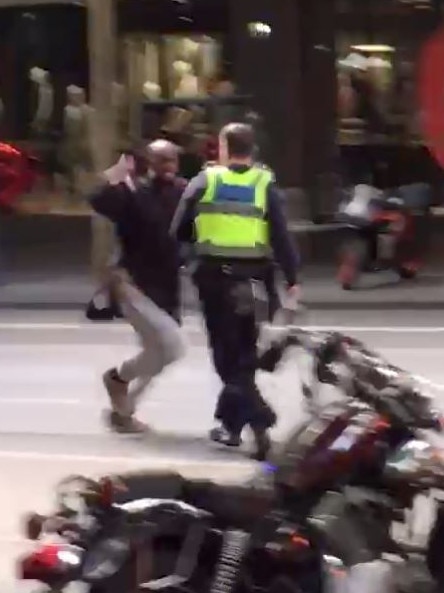
The young man, aged 24, has been on the same so-called “watch-list” as was Bourke St terrorist Hassan Khalif Shire Ali, whose passport was cancelled because he too was deemed a threat.
As we know from Ali’s rampage, attracting the attention of ASIO does not mean constant monitoring but occasional check-ins to discern any deviation in behaviour.
Since 2013, the Department of Foreign Affairs and Trade, on the advice of ASIO, has cancelled 215 Australian passports to “prevent harmful conduct”, mostly people trying to get to Syria or Iraq.
Since then, DFAT says only 12 have successfully applied for new passports. That leaves a lot of potentially angry young men and women in our midst.
In September, the Administrative Appeals Tribunal, which reviews government decisions, refused the young man’s appeal for a new passport on the advice of ASIO.
I found him working at the hotel, and he agreed to meet. Are you a security risk? “I’m not a risk to anyone,” says the young Australian-born man.
“I was never that person ASIO said I was. I never planned to fight for the Islamic State.”
So, who is he? He seems a hardworking young guy, yet the evidence against him is not comforting.
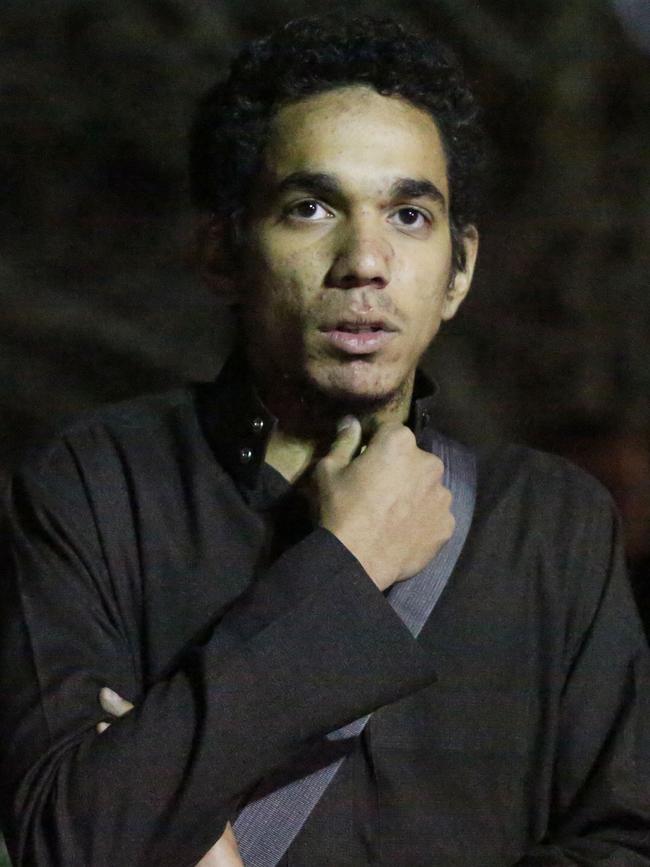
In 2016, he was stopped at Perth airport as he was flying to Malaysia. Only then he learned his passport had been cancelled. A search of his phone and computer revealed 16,000 “abhorrent” images — pictures and videos of grotesque dismemberments and horrific cruelty by IS.
He’d been monitored on and off since he was 17, over his associations with people at a Perth mosque known to be encouraging youth to go overseas to fight.
He also knew hardliner Junaid Thorne, the Saudi-raised indigenous Australian who was then in Perth but now lives in NSW; and had visited known extremists in Melbourne.
It leads to a bizarre situation: ASIO stops them going abroad, for fear they might return battle-hardened, yet they can potentially do much worse damage here.
The young man had argued he only wanted to go to Malaysia to get married to a woman he’d met online.
This woman, however, was already facing trial in Malaysia for forging documents and for being in possession of a headband with the “Shahada” that has become associated with the Islamic State — the same black flag Man Haron Monis hung from the window in the Lindt Café.
WHO’S BEING WATCHED?
Terror expert Greg Barton says it’s easier to cancel someone’s passport than to charge them for possessing a trove of abhorrent images, or for associating with questionable people.
It’s not like possessing child porn where a clear offence has been committed; or bikers travelling in packs wearing colours.
“You generally don’t have the basis to lay charges or even compel them in a rehab program and you don’t have the legal right to tell their employer,” says Barton.
“It leaves a strange limbo where their lives are impacted by an ASIO assessment, yet ASIO can’t tip off an employer.”
Asked about the incongruity, ASIO issued its pro-forma “no comment”.
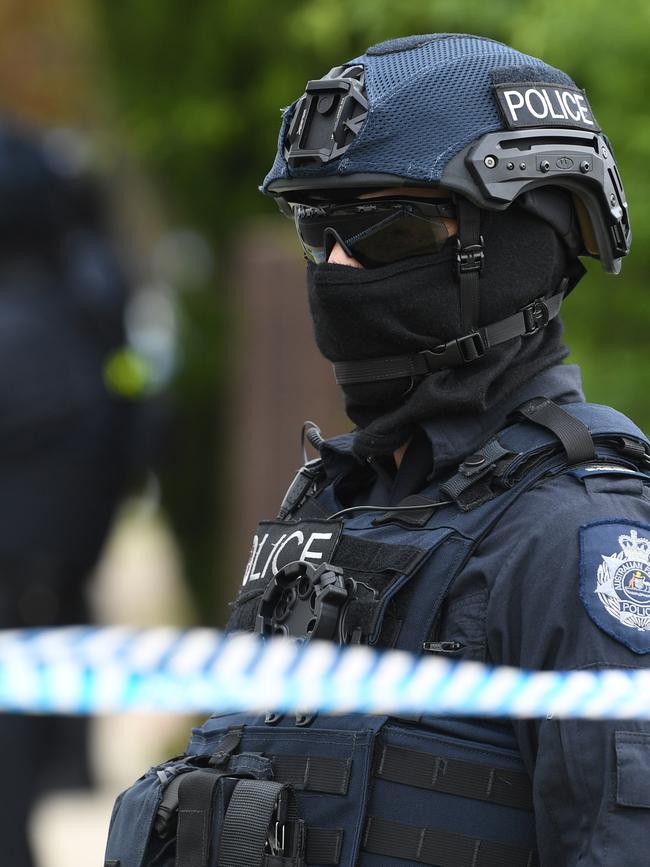
Barton describes the terror watch-list as a “matrix”; a fluid document where the immediacy of a threat dictates the resources that are allocated.
The 400 have mostly made the watch-list due to peer connections. They will at times be observed by human eyes or there will be automated alerts about their online or telephone activity.
Federal and state agencies keep their own lists and don’t always share their information as well as they should. Barton says this was evident in the 2014 knife attack on two counter-terrorism officers by Numan Haider at Endeavour Hills, who was shot dead.
“It came out ASIO had information about him that wasn’t passed on, which put the police at risk,” says Barton. “We’ve talked about fixing it but it has not really been fixed. In silo environments, they still keep resources to themselves.”
‘I JUST WANT A PASSPORT’
The young hotel worker tried to persuade the Administrative Appeals Tribunal that he had no intolerance for non-Muslim Australians. “If I was a person with a jihadist mentality I wouldn’t be working in hospitality,” he says.
“I wash glasses that serve wine, I clean up after pork, I pay taxes and I don’t see why I am a threat apart from those images. It doesn’t mean I’m not on the same wavelength. I’ve got no criminal record, my friends and family know me as a kind person.”
He believes ASIO is wrong that he wants to engage in politically motivated violence; he says the 16,000 images — heads being cut off, executions, mutilated children — were unwittingly “synched” to his phone.
He admits there was a time when he was reading all he could about Syria and Iraq. He says his low-memory android phone had a back-up secure digital or SD card that stored everything he had viewed, and more, without his knowledge.
“As I explained in the tribunal and in interviews, I entered channel groups on Telegram and Whatsapp. I was interested in looking it up, but I was never into that sort of belief.
“It’s insane that someone could download so many images.”
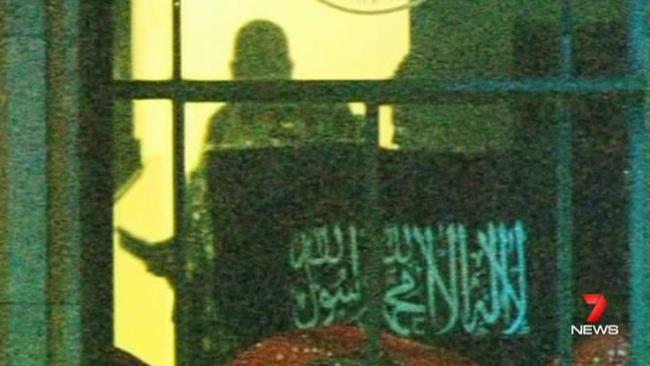
There were also photos only he could have stored, such as himself with IS insignia. “There were pictures of me with the Shahada, and if you know what it means is just a testament of faith. There’s many people who do not support violence who use it. IS misrepresented that symbol.”
In denying him the chance of a new passport, the AAT used “closed” information provided by ASIO. It is deemed so secret that he was not permitted to know what it was, making it impossible for his lawyer to mount a defence.
The information, he guesses, is suppressed because it was obtained on spyware taps that ASIO does not wish to divulge.
He says ASIO interviewers came across as friendly. “They’re very nice, and you open up. They’re a bit like a psychologist or therapist,” he says. But he claims he was “tricked” and his responses were used against him. He says he’s frustrated, but not vengeful.
He says he loves Australia. “Of course I do. It’s my home. I’ve grown up here my whole life. I know how difficult life is overseas.”
He says he feels he has freedom of religion but adds: “I think also the government is using harsh laws against certain Muslims, such as myself. The only people other than Muslims that get their passports cancelled are paedophiles.
“I just want a passport so I can travel overseas like anyone else. It’s a human right.”
Melbourne lawyer Aaron Eidelson, who unsuccessfully appealed a passport cancellation on behalf of a man who returned to Australia after spending months in Turkey (he admitted meeting IS-types but said he was only looking for a wife), says the AAT hearings are “Franz Kafka on steroids”.
“You are not allowed to know the evidence again you,” he says. “It’s not a fair-dinkum hearing. You hear about these things in Russia, you don’t expect them in your backyard.
“If you lose your licence or go to jail, you know how long it’s for. Not with passports.”
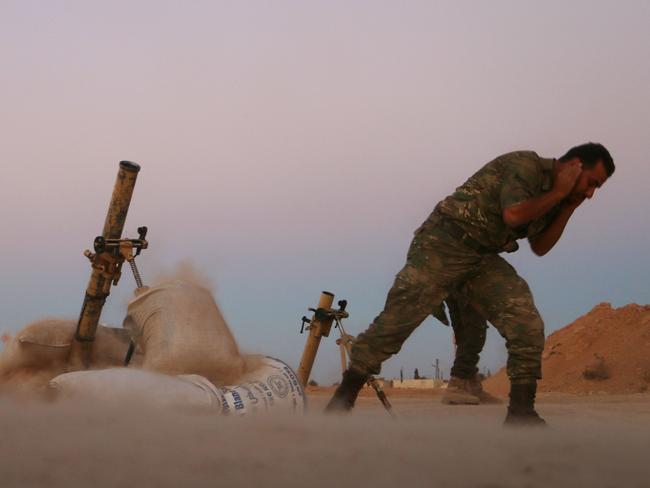
LURE OF THE BATTLEFIELD
The Islamic State is not done. Iraq is sending thousands of troops to protect its western border. It’s the same border than was overrun in 2014 as IS leader Abu Bakr al-Baghdadi set up his headquarters in Mosul.
Many Australians don’t understand why we don’t just let would-be jihadists go. Better they die on a foreign battlefield than turning our streets into one.
It’s not that simple. Greg Barton says there are compelling reasons for cancelling passports.
“We have international obligations and we can’t knowingly allow terrorism to be exported,” he says.
“The other is they can develop and bring home terror skills and charisma. And if you look at someone like Neil Prakash (currently being held in a Turkish prison), who was a nobody in Melbourne, he went overseas and started recruiting Australians online.
“He was more dangerous overseas than he was in Melbourne.”
FOLLOW: True Crime Australia on Facebook and Twitter
Originally published as Terror ‘watch-list’: ASIO leaving Aussie police in the dark on terror


